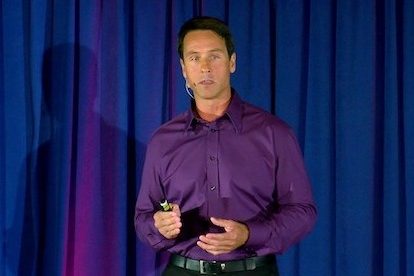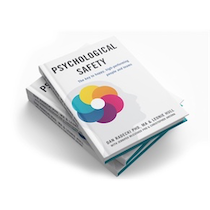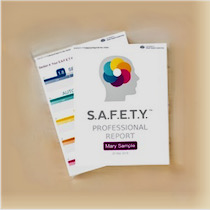Some of the positive psychology craze has lost its luster over the recent years, but did it ever deserve all of the attention that it received? Let’s start out with 2 facts:
Fact 1
Science already shows that we are, in general, overly positive. When asking a group of people, most will not admit to being below average in intelligence, looks, or even driving ability when the facts are, at least half of us are by definition, below average. Entrepreneurs who start companies must be overly optimistic since most fail, and we are terribly over-optimistic about our chances to win the lottery every time we waste money on buying a ticket. Well, at least you are over-optimistic, I am going to win next week with my lucky numbers.
Fact 2
How do you feel about having an overly optimistic lawyer writing your next business contract? Or how about an overly optimistic production manager giving you a delivery forecast for a critical customer order? Of course, the optimistic lawyer will likely miss a potential problem costing you money down the road, and that production manager just missed a big order and put your reputation on the line. We have many jobs where optimism is just not helpful.
These two facts are tough to dispute and are one of the reasons that non-believers in positive psychology stay away. I also believe that people who are positive in general or would like to be more positive tend to gravitate towards these ideas. It is what is called confirmation bias and is part of our automatic brain. But those of us who are “realists”, see all the problems that positive people miss. I know positive people who are not saving for their future (hey idiot, winning the Powerball is not a retirement strategy), or those who are overly optimistic about the relationship others see as doomed (he is cheating on you dummy!), and that crazy person with the idea for a retro pop rocks franchise (believe me, it won’t work). For sure, I am not interested in being Pollyannaish like those ridiculous positive biased people, or so I thought.
So, what is all the fuss about positive psychology?
Well, the other facts are that positive people tend to live longer and have happier lives. That is right, even if they are totally self-deceived some of the time, they also don’t fret and worry over all the things that can go wrong yet never actually happen. Positive people tend to draw other people to them and have an active social life and good social support. I mean, who wants to be around someone who is negative all the time. On a cellular level, not worrying about bad things that never happen, and maintaining strong social connections, keep the mind and body out of chronic fight and flight mode. Chronic fight and flight mode prevents your body’s cells from cleaning out the toxins and doing proper maintenance because they are too focused on fending off danger. For this reason, over the long term, when it comes to health, positivity wins. And since positive people tend to draw others towards them, it also happens to be a critical characteristic of running a successful business venture.
So, what does this teach us about life and work?
Positive psychology is a useful tool to help us live longer and happier lives and is a critical characteristic in being an entrepreneur. We have, through our biology and experiences, likely biased ourselves towards being optimistic OR pessimistic, but there is a place and a value to both ways of being. The pessimist helps protect us from potential problems and the optimist keeps us healthy, happy and allows us to build strong social networks, all important to keep our businesses and/or careers on track for many years ahead. But the key is that BOTH are required at their appropriate times, and if misused become enemies of our business or our long term health.
Therefore, we need to learn to become mindful of our optimistic and pessimistic nature and learn to leverage and apply each when necessary. It means we need to turn on our critical, semi-pessimistic nature when putting together that business forecast, but let optimism rein when confronting craziness on our vacation with our family. And of course, be sure to hire a slightly pessimistic attorney when that lottery ticket hits the jackpot.










